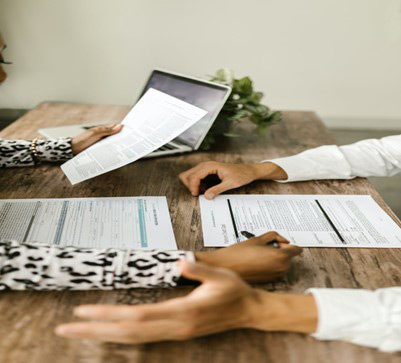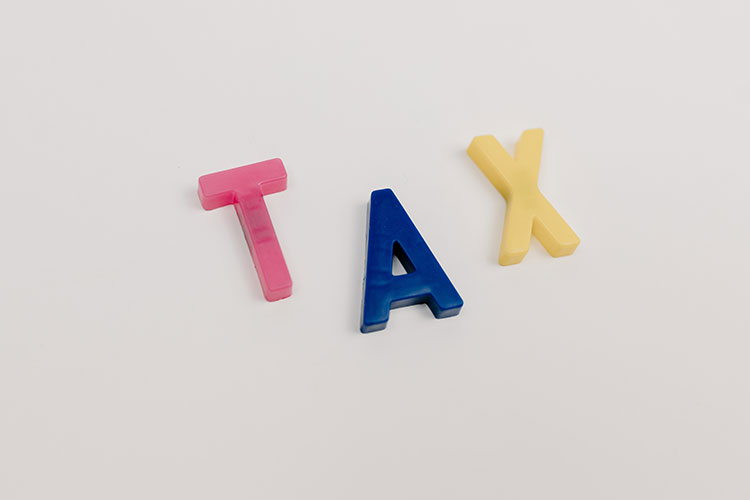When will I have to pay Capital Gains Tax on Crypto Assets?

What are Crypto Assets? Crypto assets also known as cryptocurrency and tokens is a digital currency which can only be used over the internet. It is secured through cryptography and managed through the decentralized system and therefore it does not allow any interference from any other authority such as a bank or the government. This reduces the chances of fraud because only the sender and the recipient can view the transaction. Location of Crypto Assets for Tax purposes The crypto assets are decentralized and this means that by nature they don’t have a location. However it is important to determine the location of the bitcoin for tax purposes. The location of the bitcoin is important for tax purposes for 2 reasons: The location is also important to determine if the inheritance tax needs to be paid on the crypto assets because only the non UK domiciled individuals are only subject to IHT on UK situated assets. The location of the crypto asset will be determined by the ‘residency of the beneficial owner’ this means that the person who holds exchange tokens is liable to pay UK tax if they are UK resident and carry out a transaction with their UK tokens which is subject to UK tax* When will I have to pay Capital Gains tax on my Crypto assets? HMRC expects you to pay capital gains tax in the following situations: You will be paying capital gains tax on your crypto assets if you are a resident in the UK and you have done any of the above transactions. What will I pay? You will pay capital gains tax on the gain that you will make as a result of selling, giving away or exchanging your tokens. If your gain is above your tax free allowance (annual exempt amount) which is £12 300 then you will pay CGT through your self assessment tax return. The tax rate you pay depends on the income tax rate band you fall into. If you are in the higher tax rate band you will pay 20% on the gains you make,however, if your total income falls in the basic tax rate band you will pay 10% on the gains that you make. You might be eligible for business asset disposal relief, in which you will pay tax at a reduced rate. Don’t forget to deduct allowable costs which will help reduce your gains for example costs of: If you want to buy or sell crypto assets and need any guidance to pay income tax or capital gains tax you can contact accountants in croydon, Taxaccolega and our expert team of accountants will be happy to help you. Source: https://www.gov.uk/guidance/check-if-you-need-to-pay-tax-when-you-sell-cryptoassets#report-pay
5 Tax tips for the Landlords that can save you money

When you are a landlord whether a professional or an accidental one you would want to get the maximum financial benefit from your property. One of the ways to achieve this is to work in the most tax efficient ways. This will reduce the amount of taxes you pay and as a result you can save more money. To work in the most tax efficient way you should be well aware of your property taxes, your tax deadlines, your business structure options and how they affect your taxes. Property taxes will include taxes such as rental income tax, corporation tax (if the business is incorporated), capital gains tax, stamp duty tax. Let’s look at the following tips to see how you can be most tax efficient and save money. #1 Make use of all the allowable expenses Allowable expenses are all the costs incurred which are essential in running your business. These costs are not taxable and therefore you can deduct these costs when calculating your taxable profits. This will reduce the taxable profit and therefore the tax you will pay on it. When you are a landlord managing property, allowable expenses would be any costs related to the renting or maintaining the property. The costs you can deduct are letting agents fees, advertising costs. Any kind of ground rent, utility bills, service charges. The costs would also include costs of repairing the property,however some costs are classified as capital costs and they won’t be allowable expenses for example the costs of extensions cannot be deducted from the profits. If you want to save costs you should keep a record of all the costs incurred. If you are not sure which costs are allowable expenses you can make a list of all the costs incurred and ask your financial accountant to guide you. The capital costs you incur, although you cannot claim it in your annual return, however you can claim it against the capital gains when you sell your property. You might be eligible to claim ‘Replacement of domestic item relief’ If you live in your property you can aportion the expenses and claim the expenses which were incurred in the rented part of the property. In the case when you live in your property you might be able to claim ‘ Rent a room allowance’ # 2 Make use of all the available tax bands If your spouse is not working this means that they have not utilized their personal allowance or if they are working and their total income falls within the lower tax rate bracket, it is worth considering transferring property in your spouse’s name. The transfer is exempt from the capital gains tax and you as a couple would be paying tax at the basic rate. #3 You should know your deadlines If you don’t want to lose money on paying penalties you should be on top of your taxes. Don’t leave everything to the last minute. Keep all the records, have all the calculations done on time and pay your taxes on time. If you are self-employed you can look at your tax deadlines by clicking here #4 In some circumstances you can claim VAT Although income from the residential property is exempt from VAT meaning you cannot register for VAT, however if you are in a completely unrelated business and you are a landlord as well you can claim VAT on the expenses which were related to your property. For more information on this you can follow the link here #5 Structure your business wisely You can either work as a self assessment landlord or you can incorporate your company. When you are self-employed you pay income tax (will vary depending on the tax rate band you fall into) while pay corporation tax when you are working through a limited company( fixed rate will be charged).The corporation tax is set to increase from 19% to 25% from April 2023 for businesses earning above £50 000. When you have incorporated your company you can decide on the amount of money you pay yourself as a salary and as dividend, in this way you can make use of dividend allowance as well. If you are looking for property accountants to help you with structuring your business, handling your accounts and your property taxes please contact Taxaccolega, property accountants in croydon and our team of accountants will be happy to help you.
What to look for when choosing an accountant

A business needs an accountant as early as at the planning stage. I always advise businesses to hire an accountant as early as they can because when an accountant is hired at the initial stages of making the company he will understand the company better, he will be there for you to provide you cash flow forecasts, feasibility reports and also he can play a role in structuring your company as well as company formation process. A good accountant will not only do bookkeeping but he will look after your finances and help your business grow. An accountant who is also a financial advisor today has a vital role and therefore you should choose an accountant very wisely. We have discussed a few things which you should be looking for when choosing an accountant. #1 : Know your requirements: You should be very clear in what you want from your accountant and then you can choose whether you can engage a simple book keeper or you want an ACCA or an ACA.If you want to grow your business it might be a good idea to have an ACCA or ACA on board so they can give you financial advice, save you money and also help your business grow. #2 :Where the accountants are based Whether the location of your accountant matters to you or not depends on your individual priorities. Many businesses prefer giving their accountants all the information online. They can even do all the meetings online and therefore the location doesn’t matter to them.These days a lot of accountants are using cloud based technology which makes it easier for the clients to access their financial information from anywhere at any time. #3: If they have clients similar to yours You should prefer an accountant who has experience in a business which is the same size as yours in terms of revenue and employees. It would be an added advantage if your accountants are already working with clients in the same business. This means they will understand your business better as they would be thoroughly aware of your individual industry requirement. #4: The fee structure You should understand the fee structure of your client and their billing process. You should be very clear of what fees they are charging for each service.Some accountants charge a monthly fee which includes all their taxes, others charge a monthly fee which only includes the book keeping and then separate fees for other business and personal taxes. Some accountants charge fees on an hourly basis. If you choose such an accountant who charges you hourly it would be a better idea to do the data entry on your own and then get them to prepare cash flow forecasts and do more of a financial planning, If you are interested in an accountant who can do your bookkeeping or business and personal taxes contact Taxaccolega and our team of accountants will be happy to help you. We specialize in property tax, inheritance tax . We can save you costs by benefitting you with the relief that is available to your individual business.
Mini- budget : How will it affect you?

The chancellor announced major tax cuts on Friday as he believes that it will boost the economy. He comes with the agenda that more money should be retained with people and therefore we should be expecting more tax cuts in the future as well. The UK is going through a period of high inflation , the Ukraine war has increased the energy prices and has fueled up the inflation. UK households are struggling to make ends meet, this is because the real incomes are falling and the unemployment has also increased because the companies are also struggling with high prices. The mini budget is made to address these issues. Lets see what is announced in the mini budget and how it will affect you. Income Tax The basic rate of income tax will be cut by 1 percentage point from April 2023 bringing it down to 19%The 45% tax rate for the “additional tax payers” (earning over £150 000) will be abolished and there will be a single higher rate of 40% N.I The increase of 1.25 percentage points in the National Insurance will be reversed in November 2022 SDLT There is an increase in the threshold to pay Stamp duty land tax from £125 000 to £250 000 from Sep 2022The threshold for the first time buyers will increase from £300 000 to £425 000 from Sep 2022 Corporation Tax ? There will be no rise in the corporation tax and the corporation tax rate will be charged at 19% Income tax rates: The new income tax rates will save people money. According to treasury “this is a cut of 5 billion a year and workers,pensioners can keep more of their money with an average gain of £170 in 2023 and 2024 The tax cut together with the changes in the National Insurance will save you £167 a year if you are earning £20 000 a year according to the accountancy firm EY Increase in the Stamp duty land tax threshold : The increase in threshold means that the buyers of the residential property will not have to pay stamp duty land tax (SDLT) on the first £250 000 of the property’s value. In addition the maximum value of the property on which first time buyer relief can be claimed is also increased from £500 000 to £625 000. This will encourage more people to buy homes thus boosting the property market. Once they move in they spend money on improvements, renovations, extensions etc which increase the economic activity. This will also increase the job opportunities as more people can explore new job opportunities as they might now consider buying a house near their workplace. Corporation Tax: If you have an incorporated business and you were thinking of changing your business structure as part of your tax planning you won’t have to do it anymore and this is going to save you time, energy and money. As now the corporation tax will remain at 19% this will attract more businesses. If you want any more information on how the mini budget will affect your income tax, corporation tax please contact Taxaccolega and our team of accountants will help you. Source: 11https://assets.publishing.service.gov.uk/government/uploads/system/uploads/attachment_data/file/1105985/HMT_Autu
Do limited companies pay capital gains tax?
The simple answer to this is no! The companies do not pay capital gains tax on the gains they make instead they pay corporation tax . Capital gains tax is more flexible than the corporation tax because there are reliefs available to self -employed and the sole proprietor, whereas if you are working through a limited company you will have to pay corporation tax at the flat rate. For the tax year 2022/ 2023 the corporation tax rate is 19% and you have to register for taxes as soon as you start the business. The corporation tax is set to increase from 19% to 25% in the year 2023. The individuals doing a business as a sole proprietor or as partners get a tax free allowance of £12 300 when they sell a business asset ( which includes a residential property) any gains made over this amount will attract CGT. The rate at which CGT is paid depends on the income tax rate band you fall into because of the level of income you have and the type of asset that is being sold. It is 10% or 20% depending on the income and if you are selling a residential property it is 18% or 28% depending on which income tax rate band you fall into. If you are in a property business and you are selling your buy to let property will you pay corporation tax or capital gains tax ? Well again it depends on what business structure you have. If you are self employed or in a partnership you will be paying capital gains tax on the sale of the property which is not your main home. However if you are running your property businesses as a limited company you will have to pay corporation tax on the gains. It is considered profit and will be taxed in the same way as the other profits of the company for example the trading profits or other investments. Are the profits calculated differently for capital gains tax and corporation tax? No, the chargeable gains will be calculated in the same way for both capital gains tax and corporation tax. How do we calculate chargeable gains? The chargeable gain is the difference between what you paid for an asset and what you sold the asset for .You can deduct other costs as well for example costs of improvement which will include any extensions which you did in your property. You can also deduct estate agent and any solicitor’s fees. Capital Gains Tax in high value residential property. If you pay annual tax on enveloped dwellings you must pay capital gains tax when you sell the property upto 5th April 2019 or corporation tax upto 6 April 2019. You will need to complete AETD related capital gains tax return if your company is a dwelling, is in the UK and was valued at more than £500 000. If you want to save taxes you need to do planning ahead of the tax year you should consult a tax expert to be more aware of your taxes . We at Taxaccolega have expert accountants who can help you with your tax planning If you are running a limited company or you are starting your new business and you want advice on taxes you can consult Taxaccolega and our accountants will be happy to help you.You can call us at 020 8127 0728 or send us a message here
How much tax will I pay on my bonus and how much will I take home?

The bonus you will get is considered your earnings so you will be taxed in the same way as your income. You will pay income tax and National insurance on your bonus in addition to that any student loans will also be deducted. Look at this example below: Mr J has an annual income of £100 000 (which is his base salary) and he received a bonus of £10 000 in a particular year. How much tax and NI will he pay? Income Tax on base salary Annual income £100 000 Personal Allowance(2022/2023) (£ 12 570) Taxable income £ 87 430 Tax payable at (40%) £ 34 972 As you can see above Mr J as he is earning £100 000 he is a higher rate taxpayer and therefore the bonus he will earn will also be taxed at 40% Income tax on bonus Bonus for the year £ 10 000 Tax payable £ 4000 Bonus after income tax £ 6000 National Insurance on bonus Bonus for the year £10000 National Insurance (after April 2022 is 3.25%) £325 Bonus after deducting NI £9675 If we add Mr J`s bonus for the year to the base salary the total income for the year will cross the £100 000 threshold. This means that there will be a reduction in the personal allowance, The HMRC rule is that your personal allowance goes down by £1 for every £2 that your adjusted net income is above £100 000. This means your allowance is 0 if your income is £125 140 or above. In the above example Mr J will have to pay an extra income tax on £5000 because of the reduction in his personal allowance due to his income being £10 000 above £100 000. As a result he will be paying extra tax of £2000 (40% of 5000) Look at the summary of the taxes you will be paying on your bonus: £ Income tax on the bonus 4000 National Insurance 325 Extra tax due to reduction in NI 2000 Total Deductions 6325 If you get a bonus of £10 000 or more and you are a higher rate tax payer you will be bringing home only £3 675 as cash, paying more than half of your hard work to the treasury. However, if you are a basic tax rate payer (earning between £12 571 to £50 270)and after getting the bonus you stay in the same band you will be paying tax on the bonus at 20% and you will be able to use your personal allowance fully. If you are Basic Tax rate Payer For example if you are a basic tax rate payer earning £40 000 and you get a bonus of £10 000 in a particular year you will pay income tax of £2000 on the bonus and NI will be £1350 £3350 so your take home bonus will be £6650 . How to save taxes on your bonus? So Tax is a complex topic and how much you pay depends on your individual circumstances. One way to save taxes on your bonus is to put it in your pension pot. Although you will be saving money as you won’t have to pay taxes, you will not be getting any cash in hand until you reach your retirement age. If you want to know more about taxes contact Taxaccolega here or call us at 020 8127 0728 and our expert team of accountants will be happy to help you by discussing the tax reliefs available to you and can also help in filling your self assessment and offer information on our annual accounts service. We also have a helpful article explaining the change in the income tax additional rate threshold for you to look at!
How to close a limited Company
There can be different reasons as to why you want to close your limited company.This could be because one of the following: The way you close your limited company depends on whether the company is solvent or not.HMRC gives us detailed guidance on how we can close a limited company in various circumstances, the costs involved and the accounting responsibilities . In the following blog we have tried to compile some information, How to close a company if the company cannot pay its bills (Insolvent) The way to close a limited company which is solvent is to arrange liquidation with your creditors. The director can propose to close the limited company and to initiate the proposal a winding up resolution must be passed.The passing of the resolution means that 75% of the shareholders (by value of shares) has agreed to the winding up process. Director’s responsibilities: Once the resolution is made the director should do the following: Liquidator`s responsibilities Once the liquidator is appointed the director should hand over all the information related to the company to the liquidator, for example the company’s financial record and all the information related to the assets. The director can no longer act on behalf of the company and the appointed liquidator will take the responsibility of the company. This means that the liquidator will be responsible to meet the deadlines of all the paperwork and they will be responsible to meet all the accounting and taxation deadlines. The liquidator is supposed to act in the interests of the creditors and they will be involved in the decisions where necessary. The liquidator is expected to set off company assets and pay the money that is owed to the creditor. The final VAT bill will be paid and the company will be removed from the company register. Compulsory Liquidation: If your company is unable to pay its bills and you are not able to reach an agreement with the creditors, you can apply to the court for compulsory liquidation. It should be proven to the court that the company cannot pay its debt of £750 or more. And that 75% of the shareholders agree that the company can be wound up by the court. This can be done by filling in the winding up petition and sending it to the court. If the company is Solvent If the company is solvent that means it is able to pay its bills but you don’t want to run the company for example you want to retire you have 2 options: Striking off the company You can only strike off your company if the following conditions apply: If the company does not meet the criteria of striking off a limited company can be dissolved by members voluntary liquidation, Before you apply to strike off the company you should close the company down legally. This involves informing your plans to all the interested parties including HMRC, treating your employees according to the rules and making sure nothing unfair happens to them and dealing with company assets and accounts. Once this is done the application to strike off should be filled and copies should be sent to anyone who might be a stakeholder for example: members, creditors, employees, any directors who didn’t sign the application. If you run a limited company and you want professional advice in making accounts, dissolving the company you should contact Taxaccolega and our team of accountants will be happy to help you. Source: https://www.gov.uk/strike-off-your-company-from-companies-register/close-down-your-company
I am running a charity – what are my accounting requirements?

Do I need to prepare my accounts? All charities ( whether they are registered with the commission or not)should prepare annual accounts and should be made available when requested. The way you prepare your accounts depends on the type of your charity and also the size of your charity. For example if your charity is also a company and it earns upto £25 000 per year you should prepare annual accrual accounts. The accrual accounts include information like Will I have to get my accounts audited? You will have to get your accounts examined independently either by an independent examiner or by an auditor if your charity is also a company and earns over £25 000 to £50 000. You can choose how you want to get it examined,either by an independent examiner ( which is less thorough) or by the auditor.However, if your governing document states that your accounts need to be audited then you do require an auditor. Look at this table below which summarizes the accounting requirements according to the type and size of the charity. If your charity is a Company A charitable company will have to be limited by guarantee rather than shares. Your charity is considered a company if it is registered with the companies house. If your charity is also a company, what will be your accounting liabilities with different incomes: Income Should I prepare Annual accounts ? Type of annual account Do I need to have them checked by an independent examiner or auditor Do I need to submit an annual return? Upto £25 000 yes Accruals account No Income under£ 10 000 -you only need to submit income and spending(between £10 000-£25 000)-you will only have to answer questions about your charity the annual return £25 000 to £250 000 Yes Accruals account Yes Yes and submit additional documents as well £250 000 to £500 000 Yes Accruals account Yes.If the assets belonging to the charity is more than £3.26 million then you need to have an auditor. Yes and submit additional documents as well £500 000 to 1 million Yes Accruals account Yes.If the assets belonging to the charity is more than £3.26 million then you need to have an auditor. Yes and submit additional documents as wellFor details click here Over 1 million Yes Accruals account Audit required Yes and submit additional documents as well You must submit your annual return within 10 months of the end of the financial year. If your charity is not a company If your charity is not a company and the income is below £ 25 000 you can prepare either receipts and payments or accrual accounts. Between £25000 to £ 250 000 you still have the option in preparing your accounts but have to get them checked. Above £250 000 you have to prepare accrual accounts and also have them checked. If you are looking for a charity accountant, accountant in croydon,please don’t hesitate to call Taxaccolega and our team of accountants will be happy to help you, Source:https://www.gov.uk/prepare-charitys-annual-accounts/y/no/over-250-000-to-500-000/no
Will I have to pay taxes on my State Pension?

What is a State Pension? State Pension is a weekly income which most people get from the UK government when they reach a state pension age provided that they have at least 10 qualifying years on their National Insurance record. How much State Pension will I get? The amount of state pension you get from the government depends on how many qualifying years you have on your national insurance record.You need at least 10 qualifying years to get the minimum or the basic state pension which is £141.85 per week. The full new state pension in 2022/2023 is £185.15 per week which is (9627.80) How much tax will I pay on my state pension? State pension is treated as normal income and therefore it will be taxed in the same way as any other personal income.There is a personal allowance of £12 570 for the tax year 2022/2023 ,if your income falls within this limit you don’t pay any taxes. Please note that if you have dividends as your other source of income they are taxed a bit differently. If state pension is your only income, usually you will not have to pay any taxes on it as it will fall within the annual personal allowance. However, if you have income from other sources for tax purposes you will add all the income including the state pension and pay income tax on it depending on which income threshold your income falls in. For example, Mr K receives a full new state pension which is £ 9627.80 he also receives income from renting an apartment which is £ 10 000. His total income will be £19,627.80. The tax free allowance is £ 12, 570 .The total taxable income would be £7,057.8 as this amount falls in the basic rate band Mr K will be taxed at 20% £ State Income 9627.80 Property Income 10 000 Total Income 19, 627.80 Personal Allowance (12, 570) Taxable income 7057.8 Tax rate 20% Tax payable 1411.56 You do not pay national insurance when you reach state pension age unless you are self employed and paying class 4 national insurance. How will deferring my state pension affect the taxes I pay ? If you defer your state pension you might end up getting an increased amount of state pension and this could mean that you might have to pay taxes if it exceeds the annual allowance. You might want to defer your state pension if you are still working and you don’t want to lose pension money in your taxes. How will I be taxed if I am getting a private pension as well? If you have a defined contribution pension pot you can take, usually the first quarter will be tax free but you will pay tax on the rest of it as normal earnings which will add to your state pension for tax purposes. So take special care when you have state pension and private pension and calculate the taxes accordingly. If you have any queries, please don’t hesitate to callTaxaccolega to talk to our accountants and financial advisers who are experts in advising on your taxes.
How to do Amazon accounting?

When you start your e-commerce business as an Amazon seller you should be confident enough with the way you will do it’s accounting. Staying on top of your accounting record means that you are less likely to miss your accounting and tax deadlines and therefore less likely to incur any penalties. If you have an amazon seller account, amazon will prepare the summary of your income and expenses, you need to get used to all the terms so you can calculate the profits accurately and also understand how you are doing in your business. To make your annual accounts and calculate your profits you can do your amazon accounting on the excel sheets or you can choose an accounting software as well. If you chose to do the accounting yourself or you chose to hire an accountant in either case you should know exactly how your profits will be calculated. The key to accounting is understanding and recording the following: Make sure you keep the evidence for all your expenses as well as the income from the sales. The money coming in: The money coming in is the income from the sale proceeds. When selling on amazon through FBA you might have income in different currencies. Although you can get a summary of the incomes from different countries separately you will have to combine all the incomes to calculate your taxable profits. The money going out- Your costs: The money going out will include the startup costs which will be one off costs and also the ongoing costs, Startup costs will include the costs of samples, photography and everything else elated to the launch of your product. Ongoing costs: product cost, shipping, fba fees Choose an accounting software It is important that you choose the right accounting software for all the book keeping of your Amazon business. There are certain accounting softwares which will allow you to download the summary of your sales and expenses in your excel sheets. This is going to save you a lot of your time and this minimizes the chances of error as well. On the other hand you can make your own template to record the data, make your accounts and calculate profits by simply downloading the sales and expenses data from amazon. How to Download the reports : Look at the following steps which will help you download your annual sales report You just have to The report will show the summary of your income and your expenses which will also include your Amazon fees, shipping costs etc There will be a transfers section which will show how much money Amazon transferred to you annually or monthly depending on what period the summary is for. You can extract your income and calculate the net sales value by subtracting the reimbursements , expenses , operating expenses which includes amazon referral fees, put them in your template and calculate your taxable profits. If you want to consult an accountant for your ecommerce business contact Taxaccolega e commerce accountants and our team of accountants will be happy to help you.

